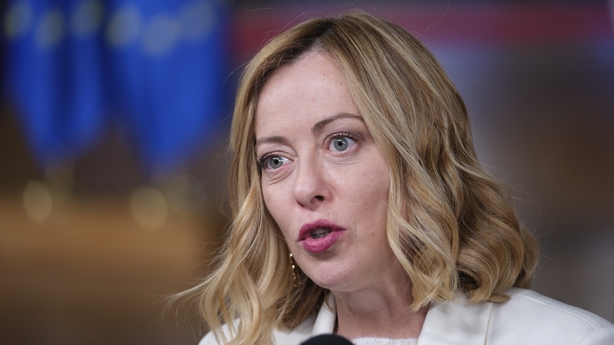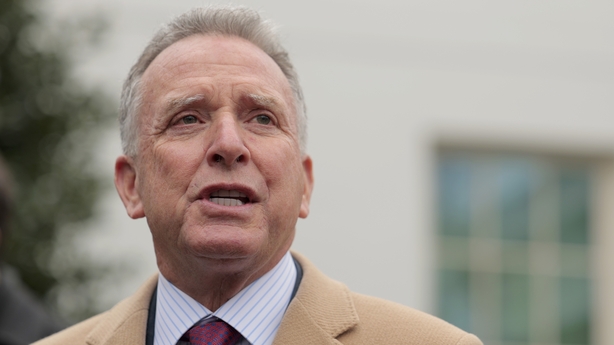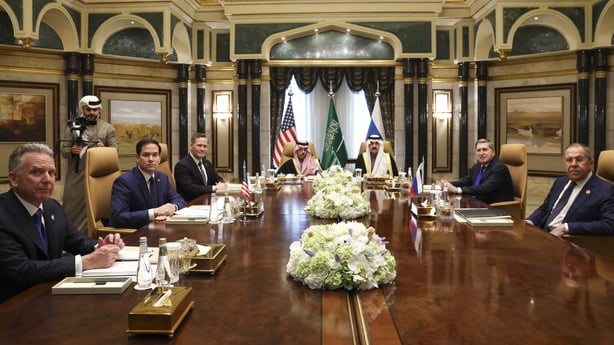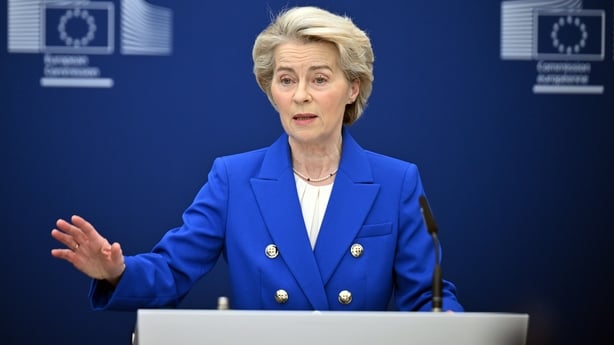Ukraine said it is asking Italy for more information about a proposal by Prime Minister Giorgia Meloni to extend NATO's mutual defence umbrella to Ukraine without offering it alliance membership or sending peacekeeping troops.
Ukraine is seeking security guarantees from its Western allies ahead of any peace talks to end Russia's invasion.
It wants NATO membership but the US under President Donald Trump has rejected this.
Britain, France and other countries are also drawing up plans to deploy European troops to safeguard a potential ceasefire under a future peace deal.
Russia opposes such plans but Mr Trump has said he believes Moscow might agree.

Ms Meloni, leader of a far-right nationalist party in Italy, is an ally of Mr Trump but has remained a strong public supporter of Ukraine.
On the sidelines of an EU summit in Brussels yesterday, she said extending NATO's Article 5 collective security agreement would be a more "lasting solution" than sending European peacekeepers or granting Ukraine full membership.
Article 5 of NATO's founding treaty requires all alliance members to consider an attack on any of them to be an attack on all.
"We welcome this statement as part of the discussion on providing Ukraine with long-term security guarantees and ensuring security and peace in general," Ukrainian Foreign Ministry spokesperson Heorhii Tykhyi said.
"As for this proposal specifically, we are in contact with our Italian colleagues to clarify the specifics of this proposal," Mr Tykhyi said, adding that Ukraine still wants its partners to send troop contingents as part of any peace effort.
Deputy Prime Minister Olha Stefanishyna told Ukrainian television that Ms Meloni's idea was "very pragmatic".
Following a massive Russian air strike on Ukraine's energy system, President Volodymyr Zelensky repeated a call made earlier this week for a truce covering air and sea, but not ground troops, as a first step toward peace.

Meanwhile the Kremlin said Russia and the US both see draft accords discussed by Moscow and Kyiv in the early weeks of the war as a possible basis for a Ukraine peace deal, but Ukraine's president has previously rejected them as unacceptable.
The draft documents - discussed at talks in Istanbul at the end of March 2022 - would have obliged Ukraine to give up its NATO ambitions and accept permanent neutral and nuclear-free status, in return for security guarantees from the United States, Russia, China, Britain and France - the five permanent members of the UN Security Council.
But the two sides disagreed over Russian demands, which included a right of veto over actions by the guarantor states to assist Ukraine in the event of an attack.
"There were very, very, what I'll call cogent and substantive negotiations, framed in something that's called the Istanbul protocol agreement," US Middle East envoy Steve Witkoff told CNN last month.
"We came very, very close to signing something, and I think we'll be using that framework as a guidepost to get a peace deal done between Ukraine and Russia," he added.
Read more:
Zelensky approval rose after Trump attacks, poll suggests
Russia launches 'massive' attack on Ukrainian energy infrastructure
Asked about Russia's position on the Istanbul draft, Kremlin spokesperson Dmitry Peskov told reporters: "In Washington, we have also heard statements that this could become a basis, a starting point for negotiations. And, of course, President (Vladimir) Putin said that the negotiations could have the Istanbul agreements as a starting point."
Mr Tykhyi said last week that Ukraine had not received any proposals from the US to use the Istanbul documents as a basis for peace negotiations.
As recently as December, Mr Zelensky rejected the approach, describing it as an ultimatum requiring his country's surrender.
Further talks planned
Saudi Arabia's foreign ministry welcomed the chance to host a meeting between the US and Ukraine next week, adding it would continue to do its utmost to help end the Ukraine-Russia war.
Mr Zelensky said he would travel to Saudi Arabia for a meeting with Saudi Crown Prince Mohammed Bin Salman ahead of talks later in the week with US officials.
A brief Saudi Foreign Ministry statement said the US-Ukrainian talks would be held in the Red Sea city of Jeddah.

"The foreign ministry confirms the kingdom's continued efforts to achieve lasting peace to end the Ukrainian crisis."
Mr Witkoff had also said he was in discussions with Ukraine for a deal framework to end the three-year war with Russia and a meeting was planned next week with Ukraine in Saudi Arabia.
In February, Riyadh hosted a meeting between US and Russian officials to discuss ways to halt the deadliest conflict in Europe since World War II.
Ukraine was not included in those talks, raising concern in Kyiv and among its European allies.
Mr Zelensky met Mr Trump at the White House on 28 February but the encounter descended into
a row when they clashed in front of the world's media over their approaches to achieving peace.
Days after the meeting, Mr Trump paused military aid to Ukraine as well as intelligence-sharing with Ukraine.
EU plan aims to mobilise €800bn to 're-arm' Europe

Earlier, the EU's 27 leaders greenlit a plan drawn up by the European Commission that aims to mobilise €800 billion to "re-arm Europe" against the perceived threat from Russia.
"Europe faces a clear and present danger, and therefore Europe has to be able to protect itself," European Commission President Ursula von der Leyen told reporters, calling it "a watershed moment" for Ukraine and for the continent.
The defence plans allow states to spend much more - at a time when Germany's chancellor-in-waiting Friedrich Merz is embracing radical reforms to fund the country's rearmament.
French President Emmanuel Macron has likewise called for a defence spending surge and said he would discuss extending France's nuclear deterrent to European partners - an idea swiftly welcomed by several EU members.
"Who can believe that this Russia of today will stop at Ukraine?" Mr Macron asked in a nationwide address during the week.
"I want to believe that the United States will stay by our side, but we have to be prepared for that not to be the case," he added.
Meanwhile, UK Prime Minister Keir Starmer has spoken with the Presidents of the European Commission and European Council.
According to a Downing Street spokesperson he "applauded" the progress made at yesterday's European Council summit.
Mr Starmer told them that "closer collaboration between the European Union, its partners and our combined defence industrial base was vital as Europe stepped up to counter egregious Russian aggression".
The leaders of Canada, Turkey, Norway and Iceland were also on the call.
According to Downing Street the leaders "discussed the Coalition of the Willing and looked ahead to the Chiefs of Defence meeting in Paris on Tuesday".
Mr Starmer also welcomed the potential for peace talks in Saudi Arabia next week.
Additional reporting Tommy Meskill

